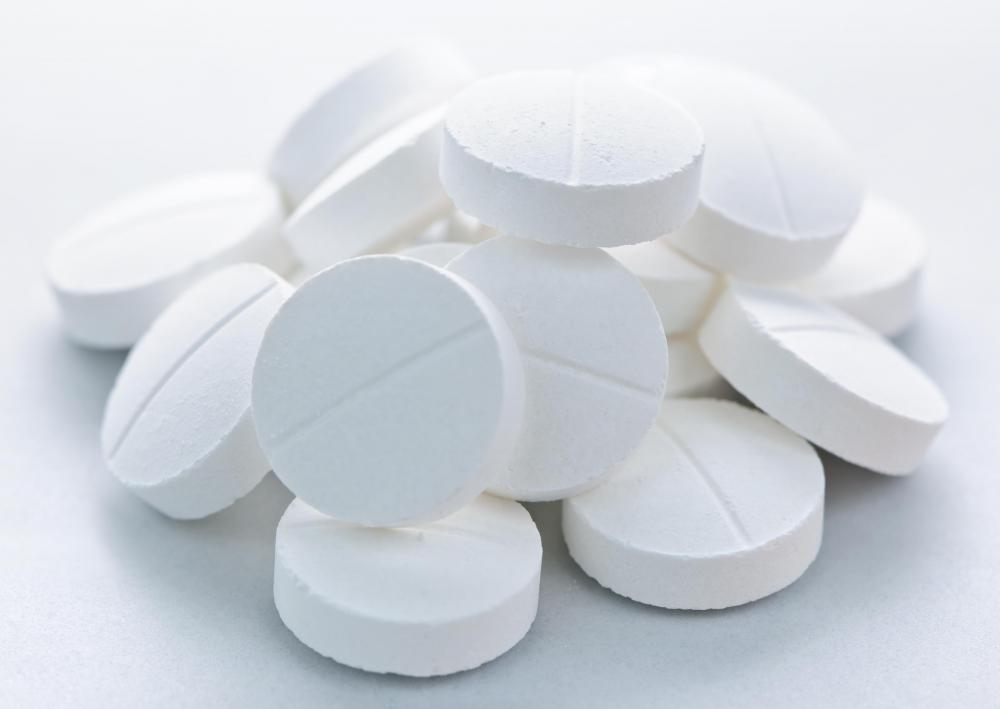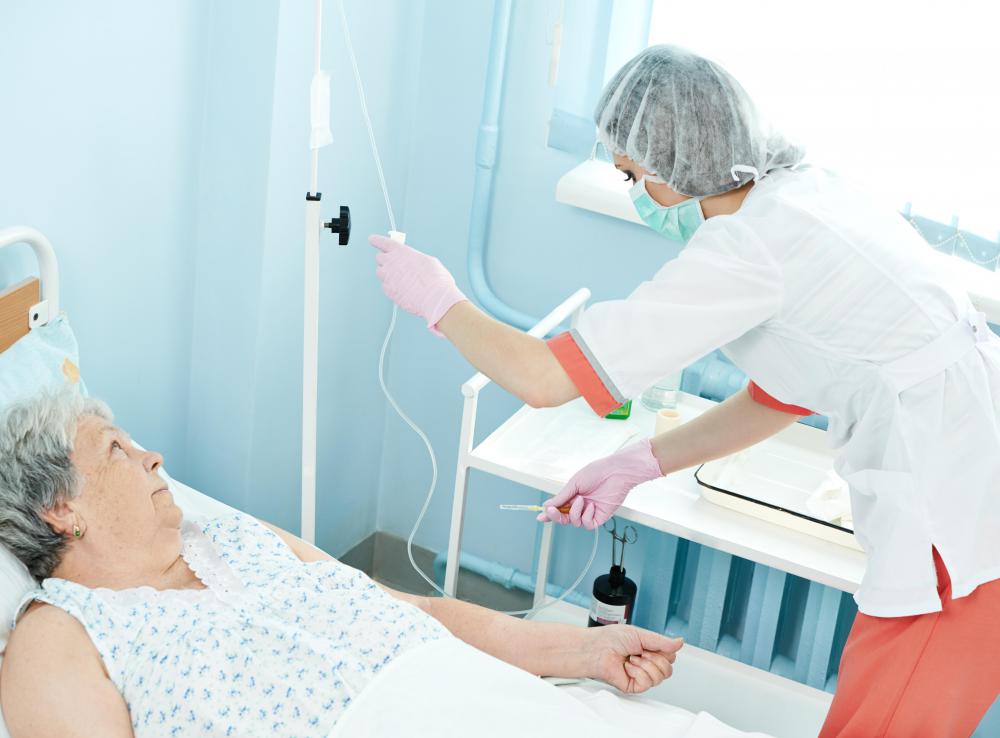At WiseGEEK, we're committed to delivering accurate, trustworthy information. Our expert-authored content is rigorously fact-checked and sourced from credible authorities. Discover how we uphold the highest standards in providing you with reliable knowledge.
How Common Are Hyponatremia and Hypernatremia?
In elderly patients, both hyponatremia and hypernatremia are fairly common. In many cases, these conditions may be the temporary result of a number of different things, including the use of medication, an improperly balanced diet, or a decrease in the amount of water consumed. Hyponatremia and hypernatremia may also be chronic conditions caused by certain diseases or hormonal imbalances. In adults and children, hyponatremia and hypernatremia are rarely seen.
A large percentage of elderly patients may be diagnosed with a low salt concentration, hyponatremia, or a high salt concentration, hypernatremia. If detected early enough, both hyponatremia and hypernatremia can be corrected, and the patient can return to a state in which the level of salt in the blood is balanced. In the general population of otherwise healthy elderly men and women, about 7% have hyponatremia, while only about 1% have hypernatremia. These numbers are slightly higher for women than for men.

In the population of elderly patients who are hospitalized or living in nursing care facilities, instances of both hyponatremia and hypernatremia are significantly increased. It is believed that as much as 30% of this population may have hypernatremia, while the number of patients who show a low salt concentration is lower, falling between 16% and 18%. In these patients, many cases of hyponatremia may go undiagnosed because the disorder is often asymptomatic.

Healthy adults and children will rarely experience either hyponatremia or hypernatremia. Though uncommon, these conditions can be caused by hormonal imbalances, diseases such as hyperthyroidism, or the use of certain medications, including oxytocin and tricyclic antidepressants. In children, 3% of those hospitalized may have hyponatremia, while less than 1% of hospitalized children may have hypernatremia, which usually develops as a result of hospitalization. In young and middle-aged adults, the instances of both hyponatremia and hypernatremia are only slightly higher than what is seen in children.

The elderly are the most likely to develop hyponatremia and hypernatremia because as a person ages, the chances of developing a condition that can cause either of these conditions goes up. With hypernatremia, the elderly are more likely to develop the condition because the sense of thirst is less acute than it is in younger adults and children. Elderly patients will often become dehydrated simply because they are not thirsty. Patients of all ages who are hospitalized are also more likely to develop both of these conditions, often because of the use of certain medications or because of dehydration.
AS FEATURED ON:
AS FEATURED ON:

















Discuss this Article
Post your comments